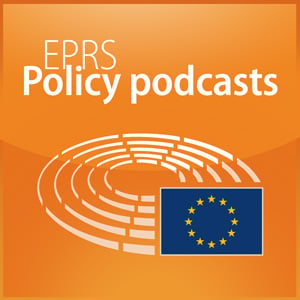Climate overshoot and adaptation: Issues to watch in 2024
European Parliament - EPRS Policy podcasts
European Parliament Webmaster
4.8 • 13 Ratings
🗓️ 23 February 2024
⏱️ 7 minutes
🧾️ Download transcript
Summary
- Original publication on the EP Think Tank website
- Subscription to our RSS feed in case your have your own RSS reader
- Podcast available on Deezer, iTunes, TuneIn, Stitcher, YouTube
Source: © European Union - EP
Transcript
Click on a timestamp to play from that location
| 0:00.0 | Welcome to the European Parliamentary Research Service Podcasts. |
| 0:05.3 | The world is not on track in keeping the global temperature rise below 2 degrees Celsius. |
| 0:11.4 | What impacts will this have and how can the EU prepare itself? |
| 0:16.0 | Stay with us to learn more about climate overshoot and adaptation, |
| 0:20.0 | one of the 10 issues to watch in |
| 0:21.9 | 2024 analyzed by the European Parliamentary Research Service. |
| 0:29.7 | The last decade was the warmest on record, especially in Europe, where average temperatures |
| 0:35.3 | have risen by more than 2 degrees Celsius above |
| 0:38.3 | pre-industrial levels. |
| 0:41.3 | The Paris Agreement binds us to limit global temperature increase to well below 2 degrees |
| 0:46.5 | Celsius above pre-industrial levels, and aims to limit the increase to 1.5 degrees Celsius. But according to the intergovernmental panel on |
| 0:57.1 | climate change without drastic cuts in global greenhouse gas emissions, temporary overshoot is almost |
| 1:03.6 | inevitable. And the greatest warming is expected in northeastern Europe, northern Scandinavia, |
| 1:09.4 | and inland areas of the Mediterranean. |
| 1:12.4 | Now, climate overshoot refers to the period during which warming will have increased |
| 1:17.2 | past 1.5 degrees Celsius before falling back down thanks to large-scale carbon removals. |
| 1:24.3 | And this will lead to more climate variability and extreme weather events. |
| 1:28.3 | We are already witnessing the effects of climate change, more severe storms, |
| 1:34.3 | shrinking ice sheets and Arctic sea ice, retreating glaciers, warmer oceans, rising sea levels and ocean acidification. |
| 1:43.3 | So the longer the climate overshoot lasts, the more dangerous and ocean acidification. |
| 1:48.5 | So the longer the climate overshoot lasts, the more dangerous the world will become. |
| 1:54.9 | Worsening impacts on human health, food security, water availability, social stability and natural ecosystems. |
... |
Please login to see the full transcript.
Disclaimer: The podcast and artwork embedded on this page are from European Parliament Webmaster, and are the property of its owner and not affiliated with or endorsed by Tapesearch.
Generated transcripts are the property of European Parliament Webmaster and are distributed freely under the Fair Use doctrine. Transcripts generated by Tapesearch are not guaranteed to be accurate.
Copyright © Tapesearch 2025.

